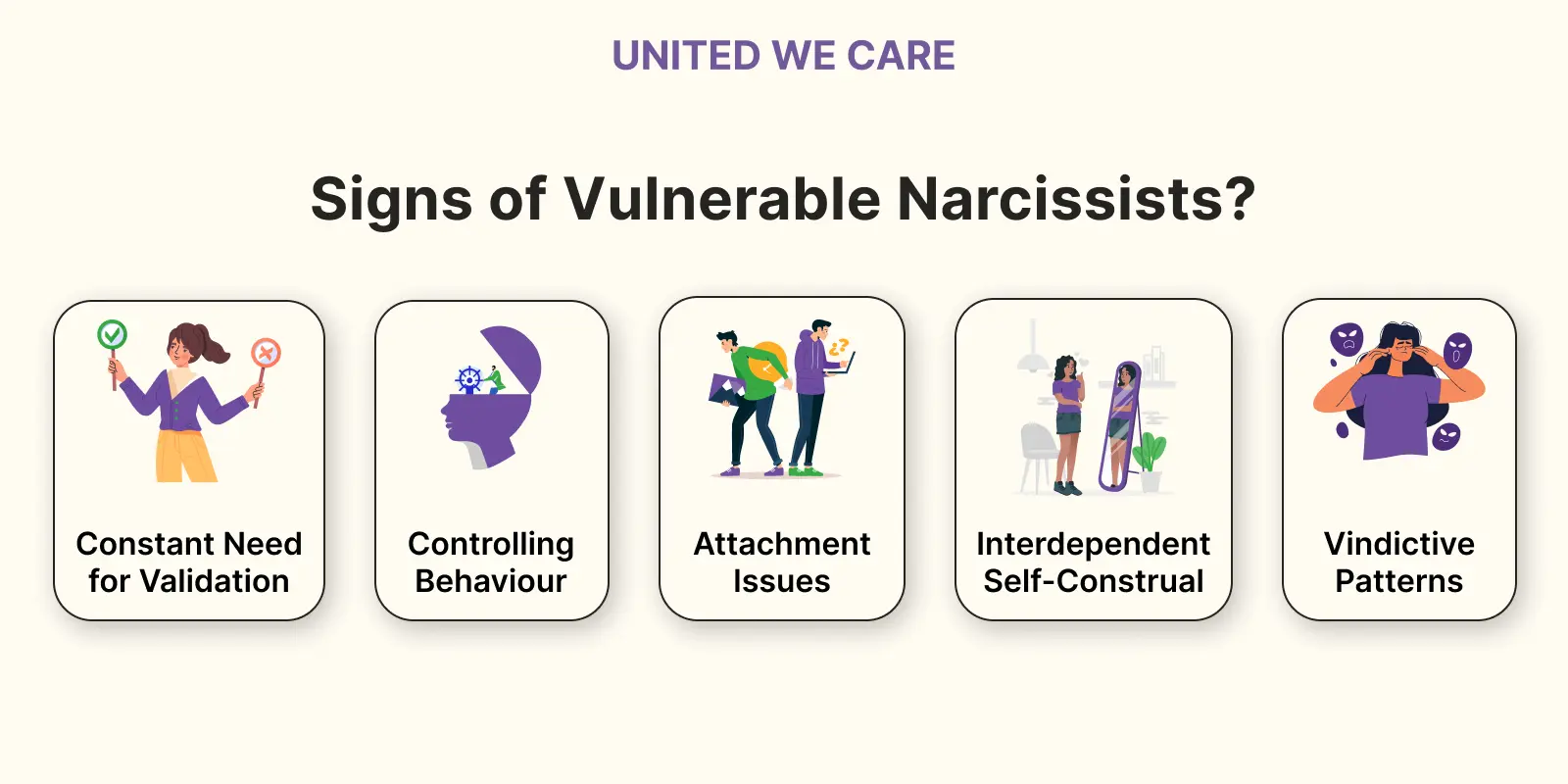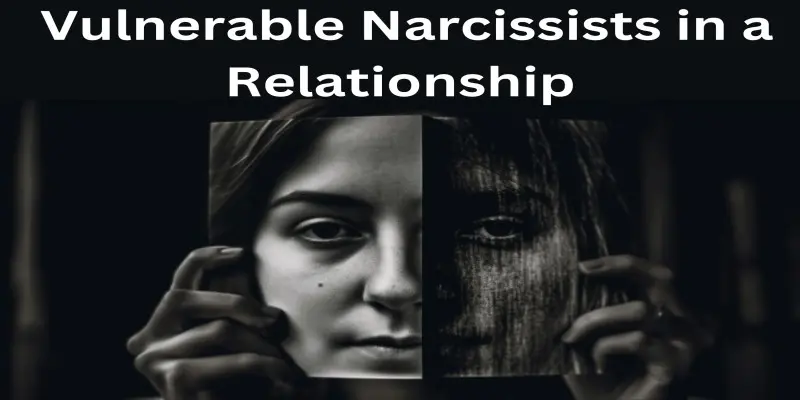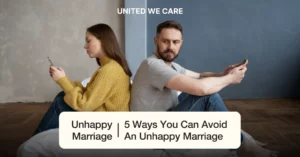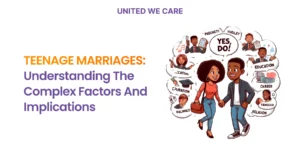Introduction
Vulnerable narcissism is an insidious set of behavior patterns that majorly impact interpersonal relationships. If you’re in a relationship with a vulnerable narcissist, things can get pretty messy and chaotic.
Typically, it is hard to understand that a relationship’s problems are being caused by vulnerable narcissism, especially if you aren’t aware of this psychological concept in the first place. The traits of vulnerable narcissism tend to be subtle and disguised under plausible deniability.
In this article, we will delve deeper into this issue and suggest five tips to deal with vulnerable narcissists in a relationship.
Definition of Vulnerable Narcissists
A vulnerable narcissist is a clinical term for someone with narcissistic traits but with a nuance of low self-esteem. Now, this may be confusing for you if you understand narcissism as self-obsession. How can someone so full of themselves have low self-esteem, right?
Basically, narcissism is a spectrum of social behaviors that include being extremely self-involved, manipulative, and inconsiderate of others. It can be categorized as grandiose or vulnerable.
Grandiose narcissism is the more commonly known kind, which involves high self-evaluation, even if it is not based on reality. Vulnerable narcissism, on the other hand, is characterized by low self-esteem. Inappropriate self-involvement is a defense mechanism to avoid suppressed feelings of low self-worth.
Essentially, both kinds of narcissism involve maladaptive and relatively permanent patterns of behavior to suppress extreme and chronic inner shame. In vulnerable narcissism, the individual is comparatively less in denial about these unpleasant feelings.
Signs of Vulnerable Narcissists
Firstly, let us try to understand how to recognize vulnerable narcissism. Before you can deal with it, you need to know the signs of a partner who is a vulnerable narcissist.

Constant Need for Validation
As partners, vulnerable narcissists tend to be very hungry for validation. They may get upset if you don’t compliment them profusely or give them attention whenever they want it. In fact, they get angry at you even if your reasons for not being available are beyond your control.
Interdependent Self-Construal
A person’s self-construal is how they define themselves. Vulnerable narcissists tend to have interdependent self-construal, which means they define themselves by the people around them. They will choose people who they think make them look better and reject those who they think tarnish their image. Unfortunately, they don’t see others as individuals but as extensions of themselves.
Attachment Issues
Generally, vulnerable narcissists tend to have insecure attachment styles. More often, they show anxious attachment that shows up as jealousy, possessiveness, and controlling behaviors. At times, they can also have an avoidant attachment, which makes them push people away or act cold and distant.
Controlling Behaviour
As mentioned above, vulnerable narcissists tend to deal with their feelings of insecurity by putting restrictions on others. They attempt to control where you go, who you talk to, and how you spend your time, money, or resources. Moreover, this starts happening very gradually, so you may not even realize that you have given them power over you.
Vindictive Patterns
Finally, vulnerable narcissists tend to be very resentful and grudging. If they feel like you have done something wrong to them, they might engage in passive aggression or even revenge. They find it very hard to let go of things and bear unreasonable grudges for longperiodse.
Impacts of Vulnerable Narcissists in a Relationship
Now, in this section, let us expand on how vulnerable narcissism impacts an interpersonal relationship. Primarily, we’ll be talking in the context of romantic relationships, but these aspects can also apply to all other relationships.
Poor or Unhealthy Boundaries
Vulnerable narcissists are terrible at establishing boundaries or respecting those of others. Sometimes, they are so closed off that they have very rigid boundaries and don’t let their guard down. But this is rare.
More often, vulnerable narcissists get boundaries blurred. They may not ask for or respect consent and may even behave in entitled ways. You’ll find that they tend to lack the understanding of personal space and take assertiveness as an attack.
Blaming and Defensive Behaviour
Commonly, vulnerable narcissists become very defensive even if no one is accusing them of anything. As they suffer from low self-esteem and low self-worth, they’re constantly on guard for perceived criticism or rejection.
Consequently, they take offense very frequently and end up blaming others. No matter what the situation, they find a way to blame someone else, even if it is unhelpful. If you’re their partner, it’s always your fault.
Loss of Sense of Self
When you’re dating a vulnerable narcissist, you tend to start forgetting who you are. Their tendency to control and see others as an extension of their self slowly erodes their personality.
You stop doing the things you like and meeting the people you love because they have a problem with it. Perhaps your economic decisions change slowly over time, and before you realize it, you lose all your autonomy. You no longer remember the self you were before meeting the vulnerable narcissist.
High Volatility & Intensity
Relationships with vulnerable narcissists tend to be very bipolar. You keep oscillating between good times and bad times, but they’re always extreme. The good days feel larger than life, movie-like, and it may seem like no one has ever loved you more.
But the bad days always return and feel so horrible that you may feel stuck and helpless. Further, since they tend to blame you for everything, the bad days may be super overwhelming because of guilt and shame. You might even get thoughts of self-harm.
Violence
Unfortunately, it is very common for relationships with vulnerable narcissists to have intimate partner violence. It doesn’t start with physical violence. At first, it may just be coercion, manipulation, or even gaslighting.
Gradually, after each bad fight, it inches closer and closer to violence. Maybe there will be verbal abuse for a while. Then, it gets combined with banging doors and throwing objects. Eventually, there is the first strike, and it only escalates further from there.
5 Tips to Deal with Vulnerable Narcissists in a Relationship
In this section, we’re going to look at five suggestions for dealing with vulnerable narcissists in a relationship. Before we begin, it is important to remind our readers that leaving or cutting the narcissist off is always an option. In fact, it is even advisable because even if you do everything possible, it may still not be enough.
Nonetheless, if for any reason, leaving is not an option, try these five tips.
Professional Help
We cannot stress enough how imperative it is for you to seek professional help. Vulnerable narcissism is no cakewalk, and one cannot deal with it alone.
You may reach out to a therapist for individual counseling for yourself, your partner, or any other family members impacted.
Additionally, you can try family therapy, couple’s therapy, and perhaps alternative healing practices. Speak to our experts at United We Care for more information.
Non-Violent Communication
Communication is the key to all successful relationships. If you need to make a relationship work with a vulnerable narcissist, both of you need to practice non-violent communication (NVC).
The four components that NVC is based on are observations, feelings, needs, and requests. Instead of accusations, complaints, blaming, or verbal abuse, the conversations are more focused on being assertive and compassionate.
Establish Healthy Boundaries
Again, this is a prerequisite for any successful relationship. Yet, it becomes doubly challenging when attempting to have boundaries with a vulnerable narcissist. They will offer tonnes of resistance. But it is your job to stay firm and believe that boundaries don’t push people away but bring them closer.
Only when two people continuously communicate their boundaries can a relationship even grow.
Educate Yourself
It is not easy to deal with a vulnerable narcissist if you are not well-informed about how narcissism plays out. When you learn about the nuances and psychological explanations of vulnerable narcissism, you’re better protected.
You start to see through their manipulation and understand that their accusations are actually confessions. It gives you more power because they can no longer control you using the same old tactics.
Practice Self-Love
The most important thing you can do if you are in a relationship with a vulnerable narcissist is to love yourself. You must offset their attacks with plenty of self-love so that your self-esteem stays intact.
Self-love can look like attending to your needs, like giving yourself the care and rest you require. It can also mean ensuring your self-talk and narrative stay positive and based on reality. It can also mean creating space between you and the vulnerable narcissist.
Treatment of Vulnerable Narcissists
It is important to understand that one can’t really ‘diagnose’ a person as a ‘narcissist’ till they show up for therapy. Sadly, it is very uncommon for people with narcissistic traits to take accountability and seek professional help.
Nevertheless, there are cases when people do acknowledge their toxic patterns and reach out to mental health professionals. In such cases, after a comprehensive evaluation, the individual is often diagnosed with a psychological condition.
Often, the diagnosis is of a personality disorder such as borderline, narcissistic, or histrionic personality disorder. Sometimes, there can be a comorbidity of neurodivergence as well. But more often than not, the individual tends to have complex trauma (C-PTSD).
Beyond that, treatment includes various modalities depending on the professional’s repertoire. A few of these include pharmacotherapy, dialectical behavioral therapy (DBT), cognitive therapy, acceptance and commitment therapy (ACT), and trauma-informed therapy.
Conclusion
Clearly, a relationship with a vulnerable narcissist can be a total nightmare. These individuals suffer from fragile egos and deep feelings of shame. As a result, they do not know how to function healthily in relationships.
Dealing with a vulnerable narcissist in a relationship is intense, challenging, and exhausting. Only do it if leaving is totally not an option for you. Try to get professional help, improve your ability to communicate and set boundaries, educate yourself about narcissism, and practice self-love religiously. You can also try some of these self-paced courses at United We Care for more helpful relationship skills.
References
[1] E. Rohmann, E. Neumann, M. J. Herner, and H. Bierhoff, “Grandiose and vulnerable narcissism,” European Psychologist, vol. 17, no. 4, pp. 279–290, Jan. 2012, doi: 10.1027/1016-9040/a000100.
[2] K. A. Dickinson and A. L. Pincus, “Interpersonal analysis of grandiose and vulnerable narcissism,” Journal of Personality Disorders, vol. 17, no. 3, pp. 188–207, Jun. 2003, doi: 10.1521/pedi.17.3.188.22146.
[3] J. Lamkin, W. K. Campbell, M. R. vanDellen, and J. D. Miller, “An exploration of the correlates of grandiose and vulnerable narcissism in romantic relationships: Homophily, partner characteristics, and dyadic adjustment,” Personality and Individual Differences, vol. 79, pp. 166–171, Jun. 2015, doi: 10.1016/j.paid.2015.01.029.
[4] J. D. Foster and A. B. Brunell, “Narcissism and romantic relationships,” in Springer eBooks, 2018, pp. 317–326. doi: 10.1007/978-3-319-92171-6_34.
[5] L. Ponti, S. Ghinassi, and F. Tani, “The role of vulnerable and grandiose narcissism in psychological perpetrated abuse within couple relationships: The mediating role of romantic jealousy,” The Journal of Psychology, vol. 154, no. 2, pp. 144–158, Oct. 2019, doi: 10.1080/00223980.2019.1679069.










